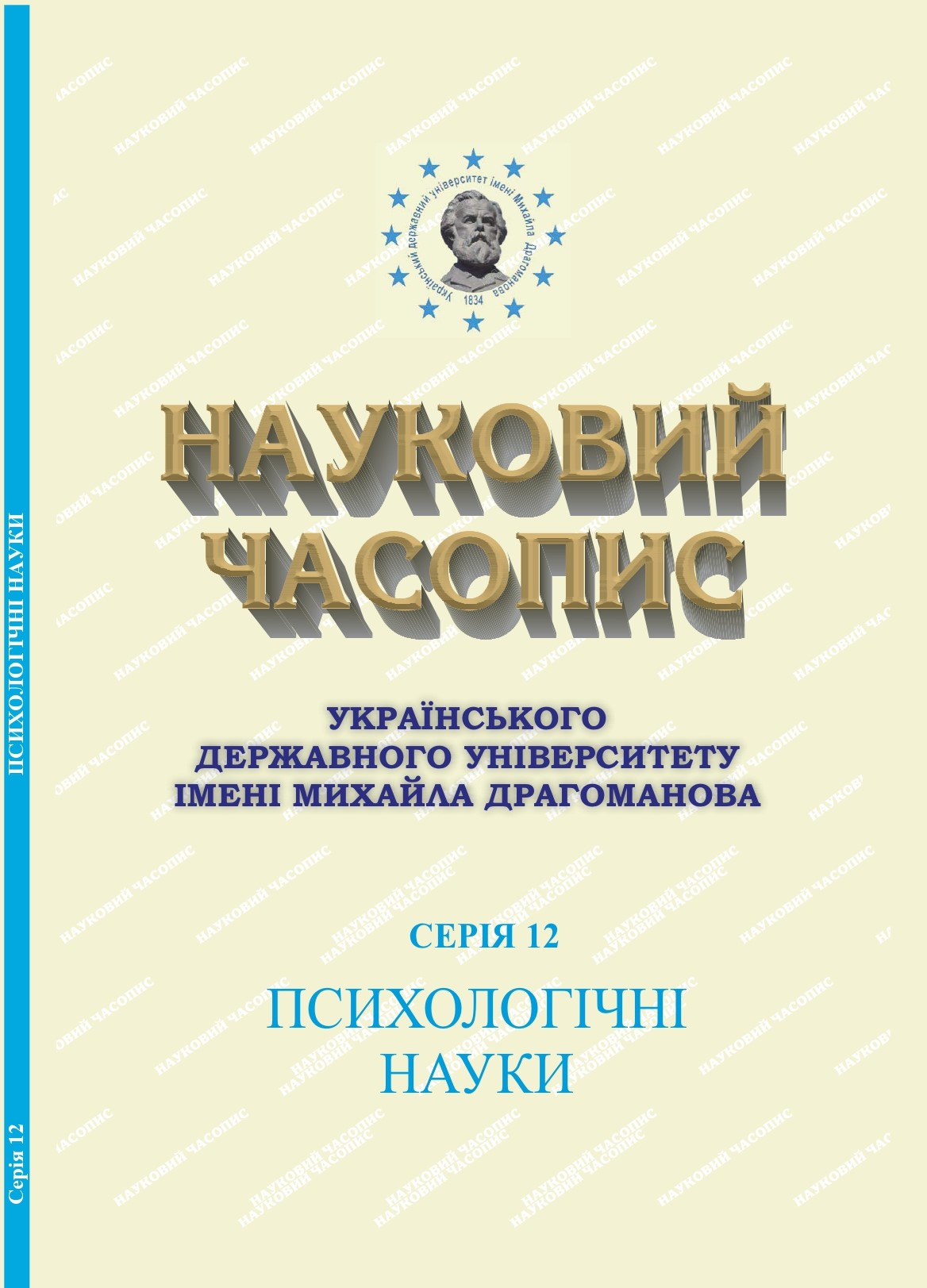PSYCHOLOGICAL CHARACTERISTICS OF ADULT PERSONALITY PROPENSITY TO EMOTIONAL DEPENDENCE
DOI:
https://doi.org/10.31392/UDU-nc.series12.2024.25(70).05Keywords:
emotional dependence, adulthood, development, psychological functioning, quality of life, emotional stability.Abstract
The article examines in detail the psychological features of the tendency to emotional dependence in an adult individual. The main attention is focused on the key role of emotional dependence in the psychological functioning of adults, revealing its profound impact on various aspects of the quality of life of an individual. The key components are considered, such as: the feeling of one's own emotions, the use of self-regulation strategies, empathic manifestations and the level of self-esteem. Various factors that influence the development of emotional dependence in adulthood, including interpersonal interaction, family upbringing and individual characteristics of an adult personality are studied. The problem of emotional dependence acquires particular importance in adulthood, when an individual usually has to achieve a certain level of emotional autonomy and independence. The lack of emotional independence can lead to the emergence of codependent relationships, which makes it difficult to develop healthy and mature interpersonal relationships. In the study of this problem, the issues of identifying psychological factors that contribute to the tendency to emotional dependence in adulthood play an important role. The study of these aspects is relevant for psychological science, as it allows for a deeper understanding of the mechanisms of development of dependent relationships, as well as the development of effective psychological strategies for overcoming them. In a general sense, this study not only enriches the understanding of emotional dependence in adulthood, but also emphasizes its key role in shaping individual well-being and social dynamics. The way forward to further research and application of this knowledge is to work on creating methods of psychocorrection that will contribute to the development of ways to reduce the level of emotional dependence, contributing to greater emotional stability. The conclusions of the article can be useful for researchers, practicing psychologists and everyone who is interested in the issues of psychology and emotional dependence.
References
- Bondarevska, L.L. (2019). Fenomen znachushchykh perezhyvan u konteksti psykhodynamichnoi teorii. [The phenomenon of meaningful experiences in the context of psychodynamic theory]. InS. Yatsenko (Ed.), Naukova shkola akademika NAPN Ukrainy Tamary Yatsenko: kolektyvna monohrafiia – Tamara Yatsenko Scientific School of Academician of the National Academy of Sciences of Ukraine (pp. 203–208). Dnipro : Innovatsiia. Retrieved from https://yacenkots.com.ua/wp-content/uploads/2020/04/Monografіya-06_05.pdf [in Ukrainian].
- Vitko, Ya.Yu. (2023). Teoretychnyi analiz psykholohichnykh mezh osobystosti skhylnoi do emotsiinoi zalezhnosti [Theoretical analysis of the psychological limits of a person prone to emotional dependence]. II Mizhnarodna naukovo-praktychna konferentsiia «Modern problems of science, education and society» – II International Scientific and Practical Conference «Modern problems of science, education and society» (Kyiv, April 24-26, 2023), (pp. 659–665). Retrieved from https://sci-conf.com.ua/ii-mizhnarodna-naukovo-praktichna-konferentsiya-modern-problems-of-science-education-and-society-24-26-04-2023-kiyiv-ukrayina-arhiv/ [in Ukrainian].
- Zhydko, M.Ie. (2006) Osobystisni chynnyky formuvannia vidnosyn podruzhnoi spivzalezhnosti u cholovikiv [Personal factors in the formation of marital codependence in men]. Extended abstract of Candidate’s thesis. [in Ukrainian].
- Kovalenko, O.I., & Samara, O.Ye. (2022). Emotsiina zalezhnist osobystist yak problema suchasnoi psykholohii [Emotional dependence of personality as a problem of modern psychology]. Naykovyi zyrnal z sociolohii ta psiholohii «Habitus» – Scientific journal of sociology and psychology «Habitus», 22, 178–181. https://doi.org/10.32782/2663-5208. 2022.42.30 [in Ukrainian].
- Milushyna, M.O. (2014). Spetsyfika dynamichnykh proiaviv rozvytku spivzalezhnosti [The specificity of dynamic manifestations of the development of codependency]. Aktualni problemy psykholohii – Current problems of psychology, 7(37), 135–143. Retrieved from http://appsychology.org.ua/data/jrn/v7/i37/17.pdf [in Ukrainian].
- Stroianovskaб O. (2020). Vplyv profilaktyky ta psykhokoretsii emotsiinoi zalezhnosti maibutnikh psykholohiv na formuvannia yikh psykholohichnoi kultury [The influence of prevention and psychocorrection of emotional dependence of future psychologists on the formation of their psychological culture]. L.V. Pomytkina & O.M. Ichanska (Eds.), Indyvidualnist u psykholohichnykh vymirakh spilnot ta profesii: zbirnyk naukovykh prats – Individuality in the Psychological Dimensions of Communities and Professions: Collection of Scientific Papers ( 246–253). Kyiv : TOV «Alfa-PIK». Retrieved from https://er.nau.edu.ua/handle/NAU/49276 [in Ukrainian].
- Epstein, R. (1997). Skinner as self-manager. Journal of Applied Behavior Analysis, 30(3), 545–568.
- Macía, P., et al. (2022). Mediating role of intimate partner violence between emotional dependence and addictive behaviours in adolescents. Frontiers in Psychology, 13, 117.
- Momeñe, J., Estévez, A., Etxaburu N., María, A., Pérez-García, & Maguregi, A. (2022). Emotional dependence on the aggressor partner and its relationship to social anxiety, fear of negative evaluation and dysfunctional perfectionism. Behavioral Psychology, 30(1), 51–68. https://doi.org/10.51668/bp.8322103n
- Weinhold, В.К., & Weinhold, J.В. (2008). Breaking Free of the Co-Dependency Trap. Navato, California : New World Library

